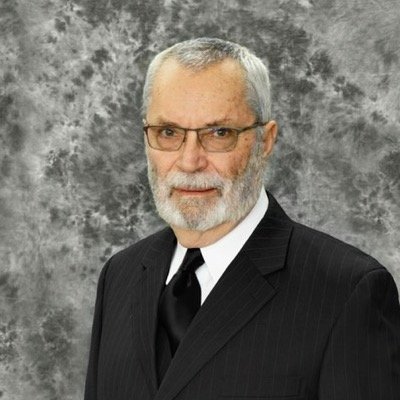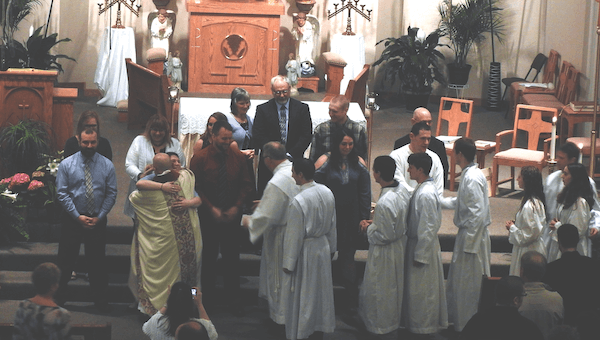OCIA
OCIA
Order of Christian Initiation of Adults
OCIA Overview
Many adults entering the Catholic Church, or those just thinking about it, follow a process known as the OCIA – the Order of Christian Initiation of Adults. The OCIA process has several distinct stages. These Catholic OCIA stages are a good model of faith development itself, so the information below will fit you whether or not you’re actually in the OCIA process.
Sacrament Quick Links
OCIA Overview
Period of Inquiry (Pre-Catechumenate)
In this first period, individuals who have expressed interest in becoming a Catholic, called inquirers, can receive answers to some of their most pressing questions about the Catholic faith. They are invited to consider how this faith might connect with their personal stories and their desire for a closer relationship with Jesus Christ and the Christian community. Individuals can expect to hear more about the person, life and ministry of Jesus Christ as contained in the Gospels of Matthew, Mark, Luke and John and to be introduced to prayer as a regular practice. This is a time to see what Catholic life is all about – however long that takes. For some individuals, this initial stage will last only a few months. Others will take more time to ask questions, consider the answers, and listen to how God is calling them.
Rite of Acceptance/ Rite of Welcoming
When an inquirer is prepared to move forward on the journey, understanding the basics of Christian teaching and showing the beginnings of spiritual life, he or she will publicly declare his or her desire share in the “life and hope in Christ” at the Rite of Acceptance. The Church, through the local community, affirms this desire by accepting inquirers into the Order of Catechumens.
For those who are already baptized, it is at this time that the inquirers are welcomed into the life of the community and acknowledged as part of it, though not yet fully initiated. This is known as the Rite of Welcoming.
Catechumenate
At this point, the un-baptized (catechumens) and baptized (candidates) will spend time learning about the beliefs of Catholics and being introduced to the Catholic way of life. The Scriptures and Catholic teachings will guide their study, while participating in various forms of worship, prayer and parish activities. Individuals will learn what it means to be Catholic and identify what changes may need to be made in their lives. As a time of conversion and deepening faith and commitment to the Church, this period is usually extended, typically lasting a year or more.
During this period, priests, catechists and the RCIA team guide catechumens and candidates in learning the teachings of the Church and in understanding the mystery of salvation. Individual support is provided by a sponsor, and the parish community welcomes and prays for the candidates and catechumens as they are formed in the Catholic way of life.
Rite of Election or Call to Continuing Conversion
The Rite of Election takes place at the beginning of Lent and is celebrated by the Archbishop (or his delegate) at the cathedral or other designated location. During the Rite, catechumens are presented to the bishop and publicly request to enter fully into the life of the Church through the Sacraments of Baptism, Confirmation and Eucharist. The names of those seeking baptism are offered for enrollment and the archbishop declares them “elect.”
During this Rite, those who are already baptized and intend to enter into full communion with the Catholic Church at Easter are also recognized by the Archbishop and encouraged to continue to respond to their baptismal calls and conversion to Christ.
Normally, parishes celebrate the Rite of Sending prior to the Rite of Election and Call to Continuing Conversion. Sponsors and godparents attest to the readiness of the candidates and catechumens for reception of the Sacraments of Initiation.
Purification and Enlightenment
This stage, which coincides with the season of Lent, is a time of final preparation for initiation. The catechumens, now called “Elect,” engage in prayer and reflection about their growing relationship with Christ and the Church. They discern how they will live out that relationship in their everyday lives. Through these practices of prayer and reflection, the hearts and minds of the elect are enlightened with a personal knowledge of Christ. Some additional rituals called “Scrutinies” also help them in this process.
Scrutinies
The series of three scrutinizes help the elect to examine their lives in order to uncover that which needs the healing and to strengthen that which is good.
Sacramental Initiation at Easter Vigil: Baptism, Confirmation, Eucharist
At the Easter Vigil, the night before Easter, the elect and candidates for full communion receive the Sacraments of Initiation:
- Baptism, which incorporates us into Christ and forms us into God’s people. This first sacrament pardons all our sins, rescues us from the power of darkness, and forever claims us for Christ.
- Confirmation, which makes us more completely the image of the Lord, sealing us with the Holy Spirit, so that we may bear witness to him before all the world.
- Eucharist. By coming to the table of the Lord, we share in the Eucharist and show the unity of God’s people.
Mystagogia
Mystagogia means “leading into the mysteries”. Those who have been fully initiated are now called “neophytes”. This last period is a time when the neophytes are helped to adapt to their new status in the Catholic community. They begin their lifelong pilgrimage of growth as the mysteries of their faith unfold. Through full participation with the community at the Sunday Eucharist, reflecting on Scripture and actively living the Christian life, the understanding of faith matures, so they can participate more fully in the life of the Church. Formally, this period lasts until the end of the Easter season, Pentecost; however, mystagogia is really a lifelong process, as we seek to understand more fully what it means to live a Christian life.
419-595-2567
OCIA Contacts

Dan Borer
Director of Adult Formation
Get Involved
Our Info
39 N. Perry St.
PO Box 89
New Riegel, OH 44853
Ph - 419.595.2567
Fax - 419.595.2303
Copyright (c) 2024 - All Saints Parish / Website Design by jHammerMedia Privacy Policy

